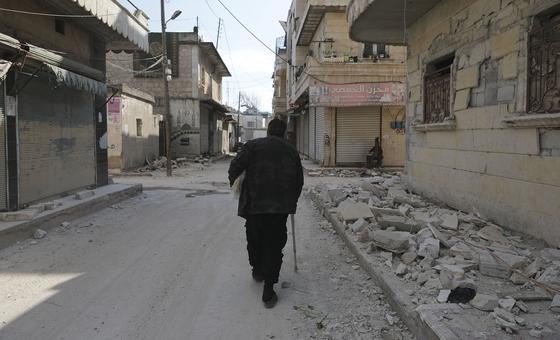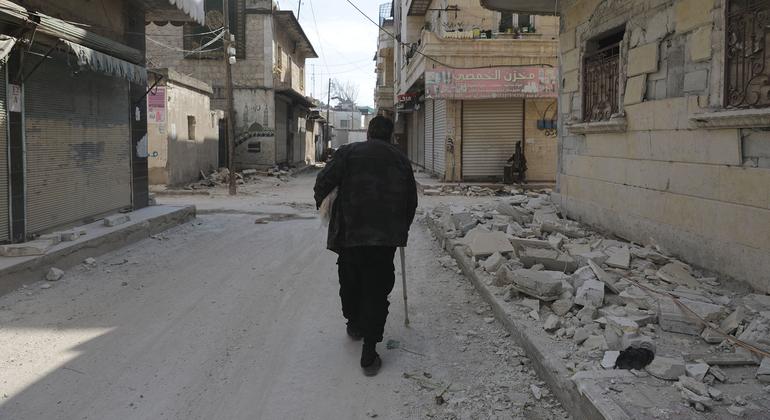
Ten trucks transporting shelter and other items from the International Organization for Migration (IOM) crossed into northern Aleppo through the Al-Ra’ee border crossing earlier that day, said Stéphane Dujarric, Spokesperson for the UN Secretary-General, at a press conference in New York.
“This is the first UN convoy through this border crossing since the Government of Syria agreed to its use for aid deliveries, which now brings us to three fully operating border crossings for the United Nations,” he said.
More trucks expected
Additionally, the World Food Programme (WFP) sent 20 trucks into Idlib province via the Bab al-Hawa crossing. Overall, the agency has delivered food to 127,000 people in northwest Syria since the earthquake struck on 6 February.
The UN has now dispatched 227 trucks to non-Government held areas in the region since cross-border operations resumed three days later.
“Preparations are underway to send more trucks through all three border crossings,” Mr. Dujarric said.
“At the same time, we and our partners continue to scale up operations in other parts of Syria. Aid in the impacted areas remains a top priority, as thousands of people remain in collective shelters across Latakia, Homs, Hama and Aleppo.”
Safe returns home
The UN refugee agency, UNHCR; the UN Development Programme (UNDP) and UN-Habitat, the Organization’s urban development agency, are helping to conduct assessments of structural damage to buildings, he added.
The exercise will help to determine whether families can return to homes that are deemed safe. Longer-term options are being explored for families who cannot return to damaged structures.
Food and other aid are being distributed to families, including those who have returned to their homes.
Support for Türkiye
Meanwhile, the UN continues to support the coordination of search and rescue operations in Türkiye. The Organization and partners are delivering food, tents, blankets, and other supplies, with medical items and personnel being dispatched to impacted areas.
The UN Children’s Fund (UNICEF) has reached nearly 218,000 people, including more than 132,000 children, with such items as hygiene kits, winter clothes, electric heaters and jerry cans.
The UN Population Fund (UNFPA) also reported that roughly 326,000 pregnant women, who urgently need access to reproductive health services, are among the earthquake survivors.



